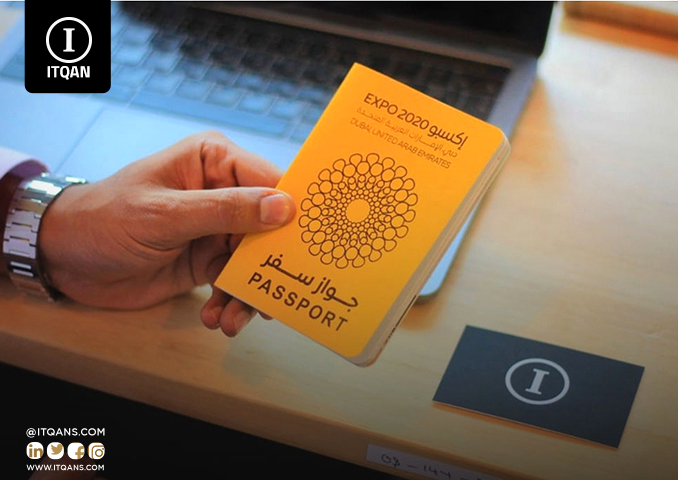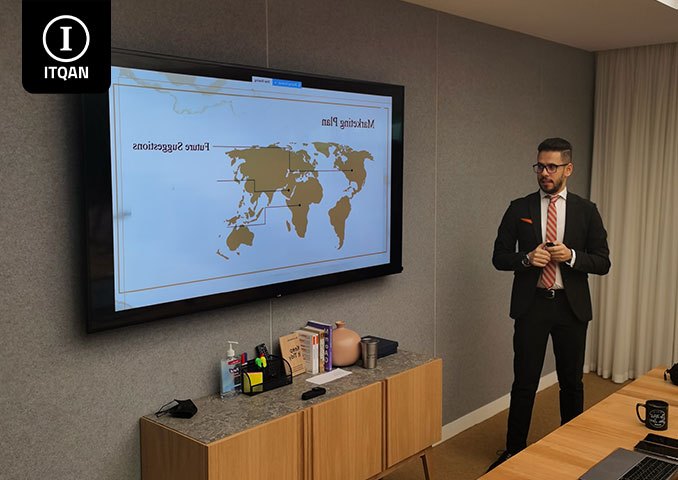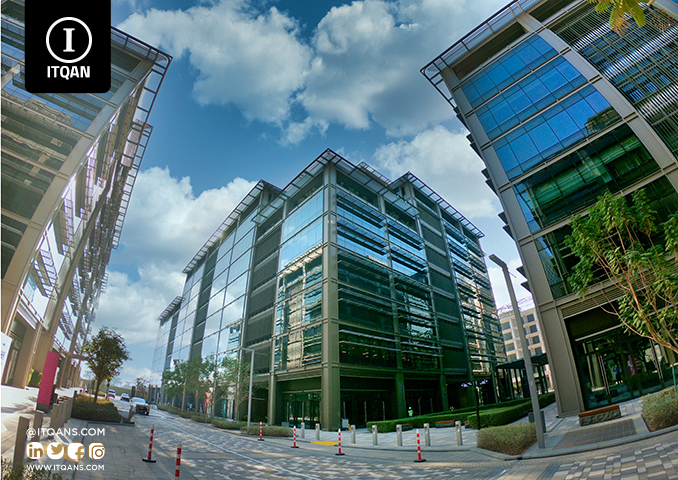How to establish a company in a free zone. Free zones are considered one of the most important economic tools that countries adopt to attract foreign investments and promote economic growth. These areas provide a distinct commercial and industrial environment thanks to the facilities and exemptions they offer to investors, making them an attractive destination for establishing new companies. Establishing a company in a free zone allows investors to benefit from a wide range of advantages that may not be available in other regions, such as tax exemptions, easy access to international markets, and advanced infrastructure.
In this article, we will review the main benefits of establishing a company in a free zone , as well as the steps needed to achieve this. We will also discuss some of the challenges that companies may face in these regions. If you are thinking about establishing a company in the free zone, this article will provide you with the basic information you need to know to embark on this promising investment path.

جدول المحتوى
ToggleBenefits of establishing a company in the free zone
Establishing a company in the free zone carries many benefits that make it an attractive option for many investors and entrepreneurs. In this section, we will review some of the key benefits of establishing a company in a free zone, which include tax exemptions, easy access to international markets, and advanced infrastructure.
-
Tax exemptions
One of the most notable benefits offered by free zones is tax exemption. In many free zones, companies enjoy full or partial tax exemptions on profits, which contributes to reducing operational costs and increasing profit margins. In addition, companies may be exempt from VAT and customs, which enhances their competitiveness in the market.
-
Easy access to international markets
Free zones provide companies with easy access to international markets thanks to their strategic location and advanced infrastructure. These areas are characterized by their proximity to major ports and airports, which facilitates the transportation and distribution process. In addition, free zones provide a legal and regulatory framework that facilitates import and export operations, enabling companies to easily expand into global markets.
-
Advanced infrastructure
The free zones offer advanced infrastructure that includes modern facilities and excellent logistics services. These facilities include warehouses, offices, prefabricated factories, and data centers, enabling companies to start operations quickly and efficiently. In addition, free zones provide integrated support services such as financing, insurance, and legal consulting services, which contribute to enhancing stability and sustainable growth for companies.
In short, free zones provide an ideal environment for establishing and operating companies thanks to a range of benefits that include tax exemptions, easy access to international markets, and advanced infrastructure. These factors combined make free zones an attractive option for investors seeking growth and expansion in a stimulating and sustainable business environment.
Steps necessary to establish a company in the free zone
Establishing a company in the free zone requires following a set of organized steps to ensure compliance with local and international laws and regulations. These steps can be divided into several basic stages, including choosing the type of company, obtaining the necessary licenses, and preparing legal documents.
-
Choose the company type
The first step in the company establishment process is to determine the type of company you wish to establish. There are several types of companies that can be established in the free zone, such as limited liability companies (LLC), branches of foreign companies, and joint stock companies. Investors should study the different types of companies and choose the one that best suits their needs and business goals. This choice will affect many aspects such as legal and financial responsibilities, the ability to attract investors, and how the company is managed.
-
Obtaining the necessary licenses
After determining the type of company, investors must apply for the necessary licenses from the competent authorities in the free zone. Requirements and procedures vary from one free zone to another, but this process usually includes submitting a formal application, paying the required fees, and submitting a reliable business plan. Required licenses may include business licenses, operating permits, and licenses specific to the industry or sector in which the company intends to operate. It is important to ensure that all necessary licenses and approvals are obtained before starting the actual operations of the company to avoid any legal issues in the future.
-
Preparing legal documents
The final step in the company establishment process is preparing the required legal documents. These documents usually include the articles of incorporation, the company’s articles of association, and company registration documents. These documents must be carefully prepared to ensure compliance with all legal requirements and regulate the relationship between partners, investors and management. It is helpful to hire an attorney who specializes in this field to ensure that all documents are correct and complete.
Once these steps are completed, the company will be ready to start its operations in the free zone. Proper establishment of a company can provide a strong foundation for future growth and success, and help avoid many legal and administrative problems that may arise later.

Challenges that companies may face in the free zone
Despite the many benefits that free zones provide to companies, there are a set of challenges that companies may face when establishing their businesses in these zones. It is important that these challenges are clear and understandable to investors and business owners to ensure the success of their project. In this section we will discuss some of the main challenges:
-
Intense competition
Free zones are an attractive destination for investors from all over the world thanks to the many benefits they offer, such as tax exemptions and advanced infrastructure. This great attraction leads to the gathering of a large number of companies in the same region, which increases the amount of competition. The presence of many competitors requires companies to provide high-quality products and services and continuous innovation to be able to survive in the market and outperform their competitors.
-
Initial costs
Although free zones offer some economic advantages, the initial costs of establishing a company in these zones may be high. These costs include licensing fees, costs of preparing legal documents, renting or purchasing facilities, and hiring trained labor. New businesses must carefully plan and manage these upfront costs to ensure they do not exhaust their financial resources before they start turning profits.
-
Economic fluctuations
Free zones, like any other economic zone, are affected by global and local economic fluctuations. These fluctuations may affect companies’ ability to achieve sustainable profits. For example, exchange rate fluctuations, international trade policy changes, and global economic crises can all affect corporate performance. Companies that rely heavily on exporting or importing may face additional challenges as a result of these fluctuations.
In conclusion, despite the challenges that companies may face in free zones, good planning and thoughtful strategies can help overcome these challenges and achieve success. It is necessary for companies to have a clear vision and full knowledge of potential risks and how to deal with them.
Our company’s role in establishing a company in the free zone
In conclusion, it can be said that establishing a company in a free zone represents an important strategic choice for many investors and entrepreneurs. Thanks to tax breaks, easy access to international markets and advanced infrastructure, companies can achieve significant growth and prosperity. However, it remains necessary to take into account potential challenges, such as intense competition, upfront costs and economic fluctuations, when deciding to invest in these regions.
Successfully establishing and operating a company in a free zone requires careful planning and a deep understanding of the legal and administrative requirements. By following the necessary steps, choosing the appropriate company type, and obtaining the required licenses, investors can overcome many obstacles and achieve their business goals.
Regardless of the challenges, free zones remain a fertile environment for innovation and economic growth. With government support and competitive advantages, companies can take advantage of this unique opportunity to succeed and prosper in both local and international markets
Frequently asked questions about establishing a company in the free zone
What is a free zone?
A free zone is a specific geographical area within the United Arab Emirates that features tax and customs exemptions and simplified procedures for establishing companies, making it an attractive destination for foreign investors.
What types of companies can be established in the free zone?
Limited Liability Company (FZ-LLC): Can be owned by one or more people. Free Zone Enterprise (FZE): Owned by only one person. Branch Company: International companies can open a branch in the free zone.
What are the basic steps to establish a company in the free zone?
Choosing the type of business activity: Determine the appropriate business activity. Choosing a trade name: Reserve the trade name through the Free Zone Authority. Obtaining initial approval: Submit an application to obtain initial approval.
How much does it cost to establish a company in the free zone?
Costs vary based on the type of company, type of business activity and free zone chosen. Costs may include trade name reservation fees, initial approval fees, license issuance fees, and commercial headquarters rental fees.
What are the main benefits of establishing a company in a free zone?
100% foreign ownership. Tax and customs exemptions. Full transfer of profits and capital. Advanced infrastructure and government support.
Can foreigners establish a company in the free zone?
Yes, foreigners can establish companies in free zones with 100% ownership, without the need for a local partner.
What is the validity period of a commercial license in the free zone?
The validity of the commercial license is one year, and can be renewed annually.

















